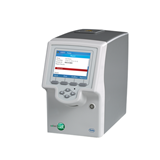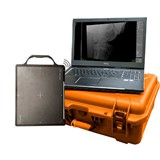Tus (pronounced TUSS) was discovered in 1989 by scientist Thomas Hill and his collaborators in the Peter Kuempel Lab at the University of Colorado in Boulder, USA.
Dr Patrick Schaeffer, from JCU’s Faculty of Medicine, Health and Molecular Sciences said Tus was a small protein found in bacteria such as E. coli, which are found in the human intestines, that binds strongly to DNA.
"An essential step in the development of new biotechnologies is the discovery or engineering of new molecules with useful properties, having a wide range of applications," Dr Schaeffer said.
"The idea here is to manufacture new molecular tools to improve current molecular diagnostics."
Dr Schaeffer will illustrate how Tus has been used to develop new ultra-sensitive diagnostic tests for tropical diseases such as melioidosis.
"Tus will aid in the development of these ultra-sensitive tests as it improves the detection levels of current techniques because we use a more sensitive means of detecting the pathogen's molecules," he said.
As well as melioidosis, Dr Schaeffer said Tus would help detect dengue, malaria and peripheral arterial diseases but it could be developed for virtually any disease.
Dr Schaeffer said proteins were versatile molecules and could do a range of things, such as binding to DNA.
"Proteins all have different functions and perform different tasks. So the trick is to find out what they are doing first," he said.
Dr Schaeffer was part of a team at Australian National University (ANU) which discovered the complex mechanism of Tus in 2006.
"Since the elucidation of its complex DNA-binding mechanism six years ago, the properties of this unique protein have been used for the development of a variety of new biotechnologies, such as improved immunodiagnostics for melioidosis," he said.




















